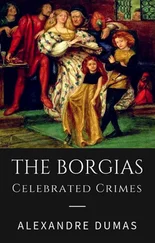The sickly and insipid Gian Galeazzo was not too troubled by this deprivation, which allowed him the time and opportunity to hunt in the pleasant countryside around the castle of Pavia, where he was confined. His ambitious wife, Isabella of Aragon, granddaughter of King Ferrante, however, was far from satisfied with this arrangement and jealously resented the position that Beatrice occupied as wife of ‘the Moor,’ a position to which she herself felt entitled as the wife of the rightful duke. In 1493 she wrote a letter of bitter complaint to her father in Naples:
Everything is in his [Gian Galeazzo’s] power, while we are obliged to live as though we were private people. Yet Ludovico, not Gian galeazzo is Duke. His wife has lately given birth to a son who, everyone thinks, will succeed to the dukedom. Royal honours were paid to him at birth while we and our children are treated with contempt. We live here in Milan at risk to our very lives… If you have fatherly compassion… I implore you to come to our help and deliver your daughter and son-in-law from the fear of slavery, restoring them to their rightful place in the world.
Isabella’s father would willingly have responded to this call, but her grandfather, King Ferrante, advised caution. Both sides appealed to Alexander VI for papal support in their quarrel. At first the pope was inclined to support the Sforzas in their endeavour; after all, theirs was a family into which his daughter was to be married and, indeed, was married on June 12, 1493.
Soon after Lucrezia’s wedding, however, an envoy of the Spanish sovereigns, Ferdinand of Aragon and Isabella of Castile, arrived in Rome and told the pope that his master and mistress supported the Spanish claim to Naples. They proposed a double alliance: Alexander VI’s son Jofrè should become Prince of Squillace, a Neapolitan grandee, and be married to Sancia, the illegitimate daughter of King Ferrante’s son, while Juan Borgia, the pope’s second and favourite son, who had inherited the Spanish title Duke of Gandía after the death of his half-brother, should now marry Maria Enriquez, a cousin of King Ferdinand.
In August Juan left for Spain, accompanied by four galleys laden with jewels and luxurious furnishings for his new palace. By November reports were reaching Rome of his misbehaviour, his mistreatment of his new wife, his reluctance to consummate the marriage, his extravagance, and his gambling. ‘Try to fulfil the hope which His Holiness has always founded upon you,’ Cesare wrote to his brother, adding, ‘If you have my own feelings at heart, do see that these reports, which give His Holiness so much pain, should cease.’
In a subsequent letter, Cesare wrote of their father’s decision that their brother Jofrè was to be granted the title of Prince of Squillace and an income of 40,000 ducats a year, and that Juan should add the Neapolitan title of Prince of Tricarico to his Spanish dukedom.
This agreement was reached ten or twelve days ago [Cesare told Juan] and your Grace will be amazed that I should not have informed you of it earlier but, finding myself somewhat indisposed when the aforesaid agreements were reached, I left for the baths at Stigliano, where I have been until yesterday, returning in health by God’s good grace… We have reason, my Lord brother, to kiss the ground on which His Holiness walks and to pray always for the life of him who has made us so great; and therefore I pray you to seek continually to serve and please His Holiness, in a manner that you may show him on our behalf our gratitude in every way that we can.
While the arrangements for Jofrè’s marriage to Sancia were being made, negotiations were also in progress to arrange a cardinal’s hat for Cesare, to join his cousin Juan Borgia-Lanzol, who had been created cardinal of Monreale a fortnight after Alexander VI’s election. As Cesare had been declared legitimate by Sixtus IV, the two cardinals entrusted with establishing his status were able to declare that he was eligible for admission to the sacred college; and so he was admitted at the age of eighteen, though he was not yet even in holy orders, which he would take the following year in Holy Week, and was admittedly ‘very young in all his actions.’
‘Such discord has never been seen,’ wrote the Mantuan ambassador when the list of proposed new cardinals was placed before the college on September 18, 1493. In an attempt to gain control of the college, Alexander VI wanted to flood it with his own candidates by creating an unprecedented thirteen new red hats. Three of the proposed candidates were Alexander VI’s secretaries; another was Alessandro Farnese, ‘brother of Giulia, the Pope’s concubine,’ as Burchard recorded; and another was Cesare, ‘the Pope’s son.’ The college objected in the strongest terms; upon being told that several cardinals strongly objected to a certain name on the list, Alexander VI angrily declared that he would ‘show them who was Pope, and that at Christmas he would make more cardinals, whether they liked it or not.’ A majority of the cardinals did not like this elevation of a mere boy to the college.
Two days later, on September 20, eleven cardinals arrived for the consistory meeting, and seven of those present agreed to vote the issue through; the other four, reluctant to be party to this unprecedented act, all abstained. Ten more cardinals, led by Giuliano della Rovere, showed their outright opposition to the scheme by refusing to attend the consistory. The decision to give Cesare a cardinal’s hat was greeted with cries of outrage. The violent Giuliano della Rovere, a longtime enemy of Alexander VI (and who later was to become pope himself as Julius II), was said ‘to howl with rage,’ so furious, indeed, that he had to take to his bed with a high fever. And when Alexander VI invested Cesare with his red hat in a grand ceremony in St Peter’s and assigned him his titular church on September 23, Giuliano and his supporters refused to play their customary part in the proceedings.
Alexander VI’s narrow victory reflected just how insecure his position was during those early days of his pontificate. He realized that he would have to tread carefully if he were to benefit from his position. There was also the fear that his enemy Cardinal Giuliano della Rovere, a formidable opponent, might well call for a council that would have the power to depose him. Already della Rovere was accusing him of trying to gain control of the college of cardinals by filling it with Spaniards and other foreigners. Alexander VI also needed to proceed cautiously in his relations with France, where the Spanish marriage alliances of two of his children were causing due unease.
As if to echo the precariousness of his position, the storms that autumn were more violent and dramatic than usual. Torrential rain caused huge damage in the fields and vineyards around Rome, and the Tiber burst its banks, flooding the city streets. ‘Bolts of lightning struck in many places,’ Burchard recorded, ‘and one hit the Vatican palace in the very room in which the Pope was in at that precise moment; he was so shocked and terrified that he lost the power of speech; two of his servants lost consciousness’; luckily they all recovered.
That autumn plague also broke out in Rome, brought, it was widely believed, by the Jews who had been expelled from Spain by Ferdinand and Isabella and who had taken refuge in Rome, setting up their tents in a camp outside the city walls by the gate leading out onto the Via Appia. As the death toll climbed into the hundreds and claimed one cardinal as a victim, Alexander VI decided to move the papal court to Viterbo. Appointing his nephew the cardinal of Monreale to take charge of Rome in his absence, the pope and his huge entourage, which included a horse carrying the Tabernacle of the Eucharist, left the city; they stayed a few days at Alexander VI’s castle at Nepi and at the Bell Inn at Ronciglione before arriving at their destination. The pope and his court stayed at Viterbo, where Alexander VI could indulge his passion for hunting in the wooded hills around the city, for six weeks, accompanied by eighteen cardinals, one of whom was Cesare. Giuliano della Rovere was conspicuous by his absence.
Читать дальше











